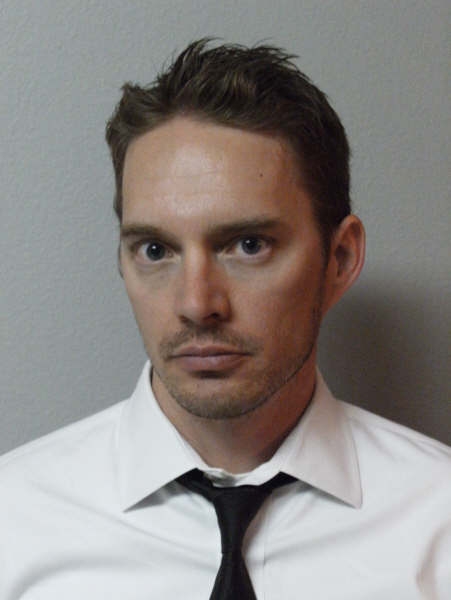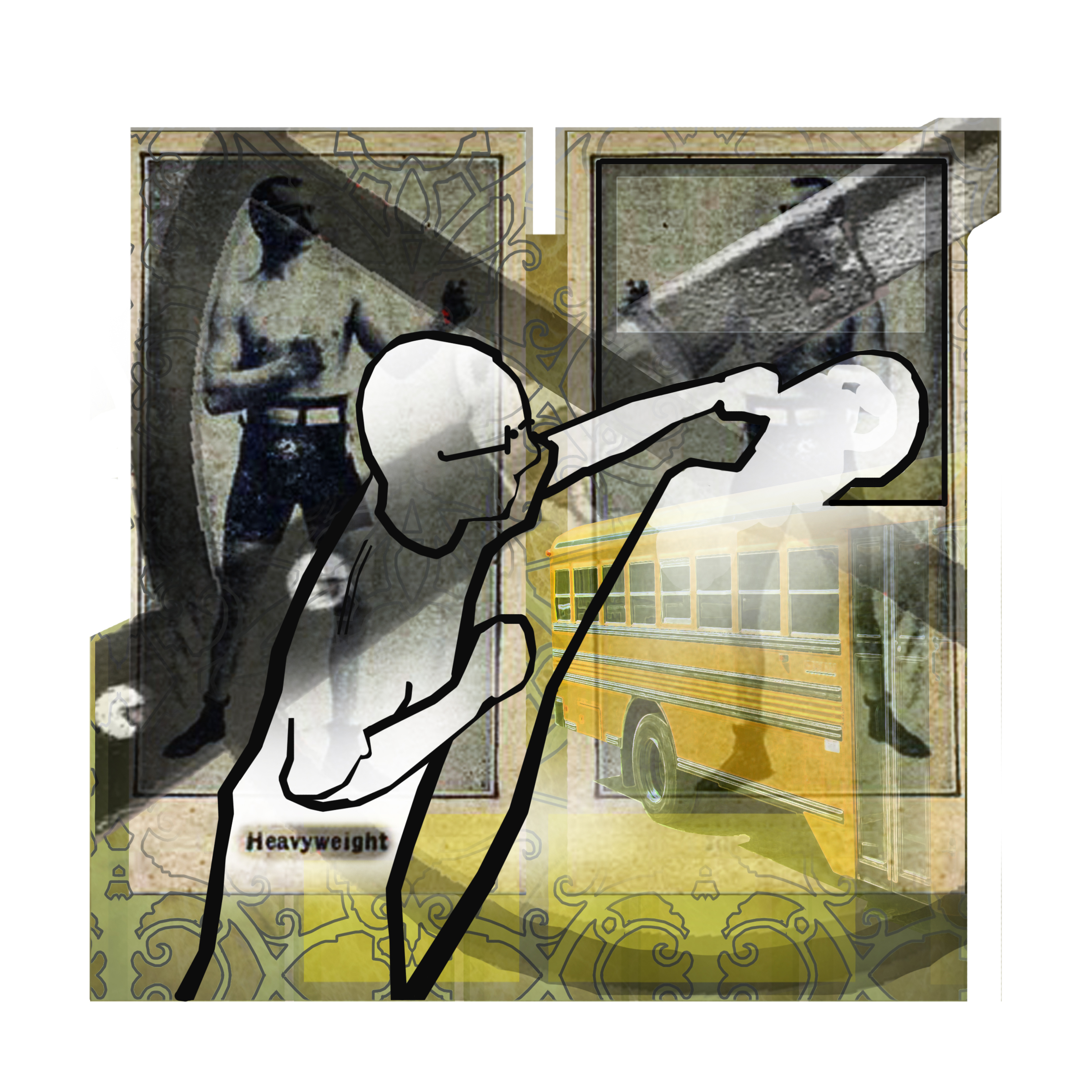
Mary Akers: Hi, Kevin. Thanks for participating. First let me say that I loved your essay “The Pugilist” and it struck me as I read that you began it in the first-person present tense, then shifted into past tense and even used the future tense in some spots. I think this speaks to the slipperiness of memories and it helps to give a feeling of immediacy to the essay. How often you write about experiences from your childhood? Do you often employ several tenses to tell a story? Can you say a little something about the tenses and how you used them here?
Kevin Jones: I often use past experiences as a template for my fiction, as many writers do, but this is the first essay I’ve directly written about an incident from my childhood. I used to think of things that happened to me as “typical” but, as the distance between those events and the present grows (a fancy way of saying “as I get older”), I find that people are often drawn to their commonalities. It lets people say “Hey, that happened to me, too” and I think that resonance can be a powerful thing.
I like to experiment with tense. When I discovered first-person present tense a few years ago, it was a revelation because it made events more immediate than the traditional past tense. Recently, however, it seems that present tense has been overdone, and I’ve found that editors and potential publishers don’t like it. First person present, especially, gets increasingly labeled as the “MFA workshop” tense, with all that that entails, good and bad. That said, I think writers have to write the way they do. In other words, trying to write in a way that you hope will get you published, instead of using your own, authentic voice, is a terrible idea, and doesn’t produce honest work. I like future tense when it’s appropriate, and think it can be a great tool for taking the reader into the future. When I first read Denis Johnson’s “Emergency” from Jesus’ Son, I was struck by not only the unreliability of his narrator, but the way he shifted tense in such a fluid manner. It made me realize that you don’t have to be stuck in a particular moment in time when you’re telling a story, and I found that very freeing. The tense shifts here let the reader be in the moment with the protagonist as he recovers from the fight, then flashback to the fight that happened only moments earlier, then further back into how this bully has been an ongoing problem, and the ultimate ineffectualness of parents in situations like this, back to the “present” and then, finally, with a future tense that makes the reader realize that somewhere this kid is looking back from the future, remembering how naïve he was back then, and hinting at some sort of future military service. In some ways, I think that all boys are training to become soldiers, whether they realize it or not.

MA: Yes, perhaps. I imagine there is something simultaneously freeing and constraining about signing over your life to become part of a unit, a greater whole. One of the reasons your essay spoke to me is because it’s very timely, with the recent spate of bullying and the sad consequences that often result from that. I know you are a parent yourself. What advice have you or do you plan to someday give your children about bullying? Would you use your own experience as a guide?
KJ: All of my children are girls (I have three), so bullying takes a different form for them. In most cases, girls bully psychologically, rather than physically, and this is better and worse. For most boys, and certainly in my case, the bullying ends with physical confrontation. That is, boys get into a fight, and then the issue is over. Obviously this isn’t always the case, and I’m not for a moment trying to minimize the effect of being bullied, but some of the more extreme cases of bullying lately tend to be psychological, sometimes to the point of the victim attempting or committing suicide. What I’ve tried to do is raise strong, intelligent girls who understand how smart and important they are; self-esteem is a powerful tool against bullying.
MA: Yes. Self-esteem is a powerful tool for many of life’s problems. Your daughters are fortunate that you have taught them to value themselves.
I especially enjoyed the way you invoke the “rules” of childhood in this piece. In particular, I’m thinking of this passage: “I had stood up to Marco, and now, in my seventh grade logic, he would see that I wasn’t going to take it anymore and leave me alone. He wouldn’t have any choice; bullies don’t pick on kids who stand up for themselves. This was the irrefutable law of every television After School Special.” I love that. I guess I don’t really have a question, but would you like to comment on the rules of childhood?
KJ: The “rules” are things we all absorb as kids, whether through books, television, movies, parents, friends, or anywhere else. Some of these stick with us into adulthood, like “Never rat on your friends” or “Don’t tell the teacher” (or boss). Much of our childhoods are lived out in groups (sports teams, classrooms, schools), and groups have rules and social conventions. One of the challenges of leaving childhood and becoming an adult is to stop labeling people (you’re a jock/stoner/goth/hippie/prep) and learning to look at people as individuals. Of course, not everyone does this, and some just change the labels (you’re a liberal/conservative/Southerner/hippie).
MA: I am? Why yes, I am, actually. All of those things. 🙂
I also had the pleasure of reading your excellent story “Samsara” in the anthology Home of the Brave when it first came out. I loved it. I’m a big fan of second person, but I know a lot of readers and fellow writers don’t care for it. What made you decide to use second person in that story and what do you think the advantages of that point of view are?
KJ: -I used second person in that story because I liked what it did for the narrative. Second person is great for unreliable narrators (in the case of “Samsara” the protagonist is on drugs for almost the entire story) and the present tense propelled the reader along headfirst into the story. I’ve actually written several stories in second person (I’m as guilty as any writer of taking a storytelling method and beating it to death), but I’ve found, like you, that many (if not all) editors/publishers/agents can’t stand it. That doesn’t mean I don’t write any more second person stories, but I try to make sure that the POV fits the story, not just because it’s fun to write.
MA: And finally, what does “recovery” mean to you?
KJ: Recovery means that we can overcome what has happened to us before: we are not prisoners of our past.
MA: Excellent. Thanks so much for speaking with me today, Kevin. I really appreciate it.

Pingback: The Pugilist | Rkvry Quarterly Literary Journal